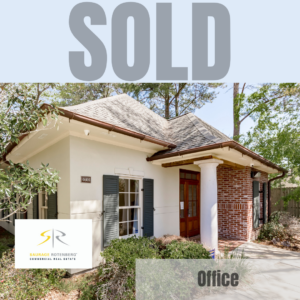Article submitted by Brian Nicolich, Sales and Leasing Agent for Saurage Rotenberg Commercial Real Estate
Written by Richard Thompson and Bryn Stole | November 11, 2017
A generous federal tax credit that developers say has had a catalytic effect on the commercial redevelopment of historic buildings, particularly in downtown New Orleans, could be on the chopping block under the broad tax-overhaul plan that House Republicans unveiled this month.
Whether or not the program is sound public policy — and whether or not it’s driving development decisions — it certainly is being used.
In the 2016 fiscal year, Louisiana ranked No. 1 in the nation in proposed rehabilitation activity as measured by the number of projects, according to the National Park Service, which oversees the federal program.
Additionally, New Markets Tax Credits, a federal program supporting investment and real-estate projects in low-income communities, would also get the ax under the House version of the bill, which went through an extensive committee markup last week.
But the Senate’s tax-cut plan, which differs in a number of significant ways from the House version, retains the New Markets credits for 2018-19 and retains the historic rehabilitation tax credits indefinitely, although it slashes the percentage of rehab expenses eligible for the credit from 20 percent to 10 percent.
Several Louisiana lawmakers in Washington highlighted the historic tax credits when asked about changes they’d like to see made to the House’s plan. And the state’s chief economic development official also offered his endorsement, saying that the incentives help redevelop properties in both urban and rural areas as well as low-income communities.
“New Market Tax Credits serve to leverage the financing needed by developers to bring about community development and restore vacant buildings to full utilization,” said Louisiana Economic Development Secretary Don Pierson, who cited a number of projects financed by the program, including the Hilton Baton Rouge Capitol Center and the Indigo Hotel in Baton Rouge.
New Orleans’ downtown building boom began in 2010 and has accelerated in the past five years, with more than a dozen hotels in various stages of construction or conversion. That’s thanks in large part to the incentives now at risk, according to developers and real estate brokers.
The city is a prime candidate for such work due to its trove of historic buildings, many of which — like the former World Trade Center building at the foot of Canal Street — have sat vacant for a decade or more. After being stalled for two years by litigation, plans for converting the 33-story 1960s office building into one of the world’s most prestigious hotel brands are now moving ahead. The Four Seasons is slated to open in 2020.
Supporters and critics
Brian Nicolich joined Saurage Rotenberg Commercial Real Estate in May 2017. He is a lifelong resident of Baton Rouge. Brian attended both St. Michael the Archangel High School and Louisiana State University (LSU). He started his career in Luxury Car Sales, working at Brian Harris Porche Audi for eight years. Brian will be pursuing his Certified Commercial Investment Member (CCIM) designation through the Commercial Investment Real Estate Institute.
Saurage Rotenberg Commercial Real Estate is a member of the Baton Rouge Area Chamber of Commerce (BRAC); the West Baton Rouge Chamber of Commerce; the Baton Rouge Better Business Bureau; the Louisiana Commercial Data Base (LACDB); and the International Council of Shopping Centers (ICSC). Several agents, on an individual basis, are members of the Society of Industrial and Office Realtors® (SIOR), the Certified Commercial Investment Member Institute (CCIM); the National Association of REALTORS® (NAR); and the Greater Baton Rouge Association of REALTORS® Commercial Investment Division (CID).




